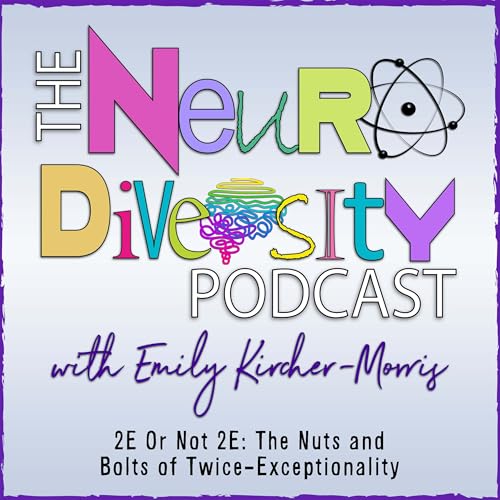This is part two of our conversation with Dr. Jack Naglieri, an emeritus professor at George Mason University and senior research scientist at the Devereux Center for Resilient Children. Dr. Naglieri is best known for developing the Naglieri Nonverbal Ability Test and the Cognitive Assessment System (CAS).
Emily and Jack talk about the history and evolution of intelligence testing, exploring how traditional methods like the Stanford-Binet and WISC have influenced our understanding of intelligence for over a century. Dr. Naglieri shares his critical perspective on the limitations and biases of these tests, particularly their reliance on verbal content and the implications for equitable assessment.
They also talk more about the PASS theory (Planning, Attention, Simultaneous, and Successive processing), which forms the foundation of the CAS, and how this theory, based on brain function, can provide a more accurate and inclusive measure of cognitive abilities. The CAS was designed to evaluate these processes, and offers insights into students' strengths and weaknesses, which can help identify learning disabilities and giftedness.
This conversation challenges traditional views on intelligence testing and offers new perspectives on how to measure and understand cognitive abilities in a fair and scientifically grounded manner. Feel free to download a free copy of PASS Theory of Intelligence and the CAS2.
Our courses in the Neurodiversity University are 50% off right now, for a limited time. Click here, and use the promo code SUMMER24.
Dr. Jack A. Naglieri, Ph.D., is Emeritus Professor at George Mason University and Senior Research Scientist at the Devereux Center for Resilient Children. His main interest is the development of psychological and educational tests and the implications these approaches have for accurate and equitable assessment.
He has published about 25 books, 50 tests and rating scales, and approximately 300 research papers. Jack is the author of tests used for identification of gifted students, including the Naglieri Nonverbal Ability Test. He partnered with Dina Brulles and Kim Lansdowne to coauthor the Naglieri Tests of General Ability Verbal, Quantitative and Nonverbal, and the book, Understanding and Using the Naglieri General Ability Tests: A Call to Equity in Gifted Education (Brulles, Lansdowne & Naglieri, 2022).
Dr. Naglieri has received many awards for his extensive research program that includes scholarly research, books, and psychological tests with an emphasis on uniting sound theory with equitable scientific practice.
BACKGROUND READING
PASS Theory of Intelligence and the CAS2
Jack’s website
The Naglieri General Ability Tests
 40 m
40 m 36 m
36 m 35 m
35 m 42 m
42 m 26 m
26 m 28 m
28 m 38 m
38 m May 30 202430 m
May 30 202430 m
